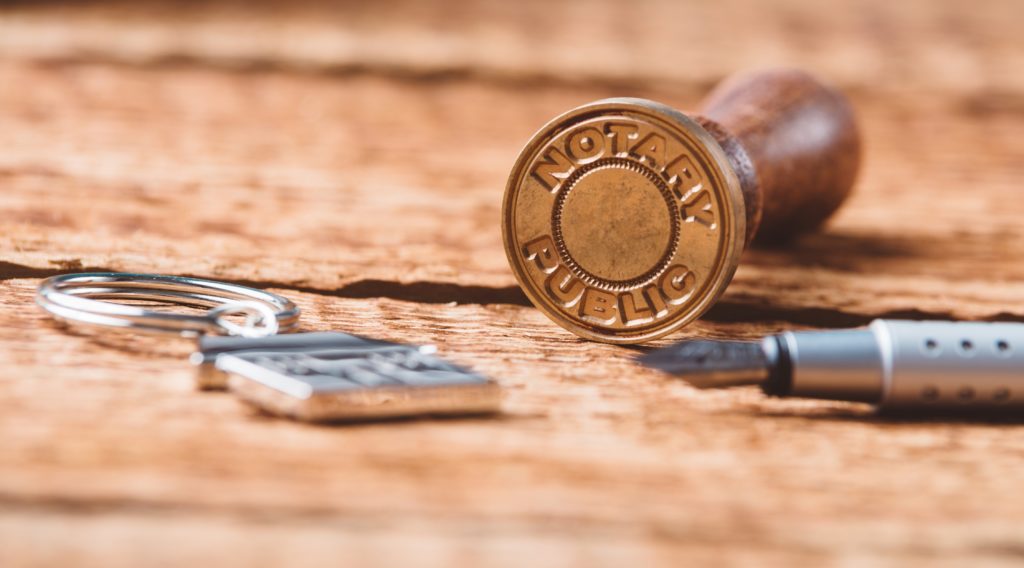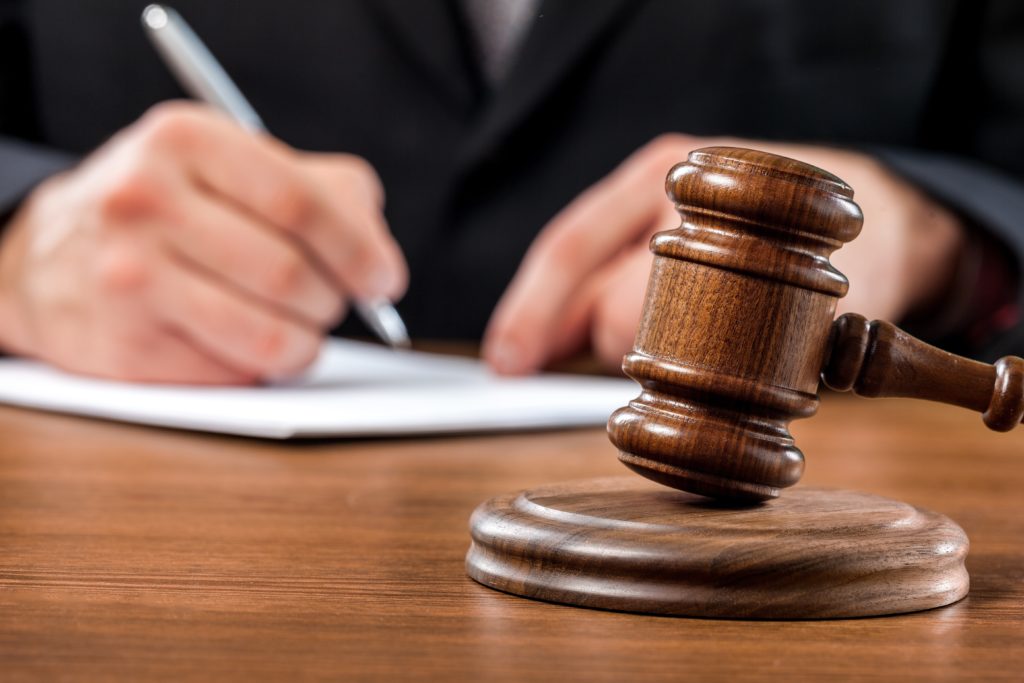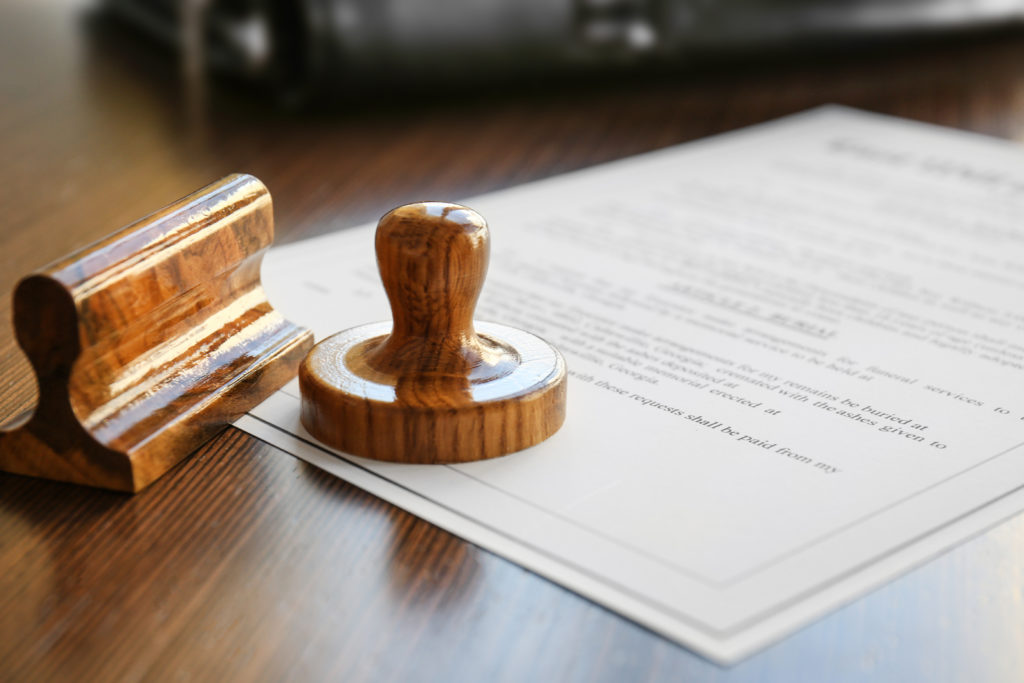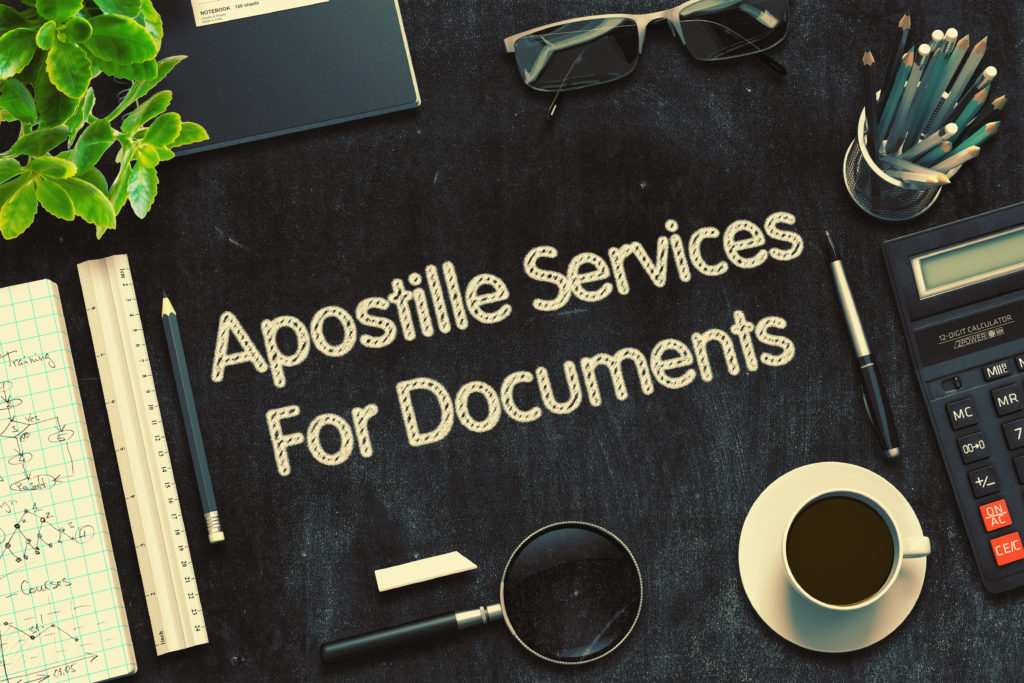Life is full of ups, downs, and sideways moments. Sometimes, life’s little bumps in the road inevitably intertwine with legal proceedings or court cases. Unless you are educated in the intricacies of the law, it is easy to get overwhelmed by the jargon and sheer amount of documents involved in legal affairs. In some cases, you may be required to sign a sworn statement. You are likely curious what exactly that entails. Worry not, in this article, we are going to answer all of your questions regarding a sworn statement.
What is a Sworn Statement?
A sworn statement is a legal document that details important facts, evidence, or the statements of parties involved in a specific court case or legal matter. Unlike many other legal documents, a sworn statement does not require the signatures to be notarized. However, a sworn statement includes language confirming that the signer swears the information included is truthful. In fact, a sworn statement often specifically states that the signer will commit perjury if their statement is not truthful.
Under Penalty of Perjury: Explained
Perjury is the intentional falsification or withholding of information during official and/or legal proceedings. Lying about or omitting information is considered perjury. This is true of information written or spoken. In both cases, perjury is punishable by law. When someone signs a sworn statement, they are liable for perjury if they are knowingly being untruthful. Therefore, the responsibility of signing a sworn statement should not be taken lightly.
To further illustrate, you have likely seen a court case play out on TV, be it real or fictional. When a witness takes the stand, they usually place their left hand on the bible and raise their right hand in the air. Then, they will repeat something along the lines of “I swear to tell the truth, the whole truth, and nothing but the truth so help me God.” This oath helps further heighten the importance of telling the truth. Signing a sworn statement does not involve this verbal ceremonial oath. However, the intent and honesty behind signing a sworn statement should be taken just as seriously as saying a verbal oath.
Sworn Statement vs. Affidavit
Affidavits are similar to, and often confused with, sworn statements. Both are documents containing important information pertaining to legal matters. Additionally, both affidavits and sworn statements are intended to contain only truthful information, under penalty of perjury.
However, there is one main difference between the two documents. Unlike its cousin, the sworn statement, an affidavit legally requires certification by a notary public.
What is a Declaration?
A declaration is simply another name for a sworn statement. In fact, a declaration, a sworn statement, and a sworn declaration are all the same thing. However, there are a few individually defining legal intricacies of each that may vary from state to state depending on local laws.
Overall, a declaration upholds the same notion of a sworn statement. Namely, a declaration does not require notarization. Furthermore, the signer of a declaration is subject to committing perjury should information sworn in the document be intentionally falsified or omitted.
Elements of a Sworn Statement
Like all legal documents, there is certain jargon and elements required to make a sworn statement viable. For starters, a sworn statement needs to be as thorough and detailed as possible. Second, whoever is giving the statement should write what they know in the first person. For example, stating “then I saw.. etc”. Furthermore, write the statement in chronological order. Bear in mind the statement should be structured on the basis of fact over personal opinions and feelings.
Logistically speaking, a sworn statement needs to include the author or the statement’s full legal name, the current date, and their signature. A thorough writer may also consider adding some optional contact information, like an email address or phone number.
Declaration of Truth
Finally, the most important element of a sworn statement is a clause, or declaration of truth, that should be included at the bottom. This clause will state that the author and signer of the statement promises that the information included is true and fully formed. While the exact wording may change, the declaration of truth will usually go something like this:
“I, [insert name], certify, under penalty of perjury of the state of [insert state], that the information provided herein is true and correct to the best of my knowledge.”
This clause heightens the stakes and responsibility of the signer. Upon signing, they acknowledge that they are signing under the pretense of legal action should they knowingly falsify or alter information.
Sworn Statement Examples
There are a number of legal occasions in which a sworn statement may come into play. However, do keep in mind that the laws and acceptance of sworn statements vary from state to state.
Personal Injury Case
One of the most common types of court cases utilizing a sworn statement is personal injury cases. They are countless examples of personal injury cases. Ranging from angry gym goers who stubbed their toes to life-altering injuries sustained from a car accident. Sworn statements are frequently used on small scale personal injury claims. Larger injuries involving higher medical bills call for documents to be notarized, as more is at stake legally and financially.
Let’s roll with the example of a broken “stubbed” toe at the gym. The accuser is suing the gym for damages because they allegedly broke their toe on a piece of equipment. A third-party witness can submit a sworn statement as evidence either confirming or denying the accusers allegations.
Immigration
As you are likely aware, immigration is a massive thread in the fabric of society. Whether you are coming or going, immigration is usually a long process involving countless documents. There are, naturally, dozens of instances in which a sworn statement may be utilized for immigration purposes.
For example, let’s say a couple from different counties gets married. In America, an immigrant can legally apply for citizenship if they are married to a U.S. citizen. However, with an unprecedented amount of “sham” marriages for the sake of a green card, the U.S. has cracked down on confirming the validity of these marriages. If the legitimacy of a couple is questioned, a close family member or friend may submit a sworn statement to immigration testifying to the authenticity of the relationship.
Benefits of a Sworn Statement
There are a couple of reasons, legally and logistically speaking, why a sworn statement may benefit your case. Keep in mind, however, every case is incredibly unique. Therefore, consider the following a generalized guide of possible benefits to using a sworn statement. Consequently, it is a good idea to consult your attorney to confirm the best course of action for you and your particular case.
1. Inability to Appear in Court
In the event of small court claims, sworn statements often save a witness the hassle of physically appearing in court. This is especially helpful when the witness in question resides in a different state than the court case is occurring.
Additionally, sometimes it is more than distance that separates a witness from a courtroom. Sometimes witnesses are dealing with sickness or an ailment. In some cases, advanced age is the simple factor that keeps them from appearing in court.
2. Fresh on the Mind
Sworn statements are useful because they are recorded at the time of the incident. In many court cases, the process is incredibly long and drawn out. Therefore, the witness may not be able to recall the details as clearly as they did in their original statement.
3. Save a Trip to the Notary
As we have established, sworn statements do not require the seal of a notary public. This is convenient for a few reasons. First of all, notarization is not free. The price is both your time and money. Therefore, you can see how some people think sworn statements are a time and money saving shortcut. However, that is not necessarily the case. Which brings us to…
Cons of a Sworn Statement
As with any pro, there is usually a con. Sworn statements, while in some cases incredibly useful, are not always the best legal tool.
1. Call it Human Nature
In court cases, the physical absence of a witness to testify can affect the final court ruling. Despite the possibility of a perjury conviction, it is not unheard of for people to falsify or omit information from a written sworn statement. However, when a witness is cross-examined in-person human nature makes lying much harder. Certain gestures and verbal cues may help inform the validity of a witness’s statement. Furthermore, it is easier to point out and question possible discrepancies if the witness is present.
2. Less Legal Clout
Affidavits and sworn statements are both legally accepted as evidence in a trial. However, an affidavit is more official in most states. A notarized document has legal clout. Without a proper notarization, the court may suspect fraud. The process of notarization, though simple, is vital in preventing fraud.
Procuring an affidavit over a sworn statement can be an easy and effective way to strengthen your case.
Why Notarize?
As previously mentioned, many states have different laws regarding the use and precedence of sworn statements. For example, some states do not consider sworn statements to be viable pieces of legal evidence. Affidavits are preferred over sworn statements in court.
What is a Notary?
Whether you decide to use a sworn statement or an affidavit is ultimately up to you, your attorney, and your state’s laws. Whichever way you go, it is vital to understand what a notary is and how important they are.
A notary, or notary public, is an impartial witness to the signing of important documents. Furthermore, a notary is vital in the fight against fraud. They do more than simply watch someone sign a piece of paper. In fact, a notary not only verifies the identity of a signer but also ensures they are signing willingly and at their own free will.
Notary vs. Attorney
It is vital to understand the differences between a notary and an attorney. Simply put, a notary is not an attorney. Attornies require years of education and vigorous testing to become practicing lawyers. A notary, on the other hand, often requires little to no training or testing. At most, notaries have to take a six-hour long class.
Furthermore, notaries cannot legally draft documents or give their clients legal advice. A notaries job is to correctly identify a signer and confirm they understand and are choosing to sign the document. Should the client not understand the document, the notary is not allowed to help them understand it.
Conversely, it should be known that many lawyers are, in fact, notaries. These notary-lawyer combos can notarize documents within their firm. Lawyers cannot notarize documents they were involved in drafting.
Notary Public vs. Notario Publico
The make matters only slightly more confusing, you may also come across a “notario publico”. While translated directly as notary public, a “notario publico”, in Hispanic culture is more along the lines of an attorney. This is an incredibly important distinction to make. Many sworn statements are drafted in reference to immigration cases.
In Hispanic cultures, a “notario publico” undergoes years of training and practice in the arena of law. In certain places, notario publico’s can legally draft and advice upon documents in which they are notarizing.
If you are dealing with an immigration case, as a client or a notary, understand the differences between a standard American notary and a notario publico.
What Do I Need for a Notarization?
You will save valuable time and money if you come prepared for your notary appointment. The first step to becoming prepared is knowing what to bring. So let’s dive in, shall we?
1. Photo Identification
As previously stated, a vital element of notarization is proper identification of the signer. In order to do this, you need to bring a valid form of photo identification. The most commonly accepted forms of i.d. are a current driver’s license or passport. Some states will also accept military or state-issued identification cards. The primary elements of an acceptable photo i.d. are:
- A recent, accurate photo
- Your signature
- A brief physical description (height, eye and hair color, etc)
- The state of issue (i.e. California for a CA driver’s license)
School or work identification cards are usually not acceptable. To be sure your i.d. will be accepted by your notary in your state check this list of acceptable forms of identification.
2. Anyone Signing
Legal and financial documents often require the signature of more than one person. If that is true in your case, you can save time and money by having all signing parties present at the time of the notarization. Simply put, legal proceedings are infamous for their molasses-like speed. By having everyone sign at once, you have a little bit of power in speeding up the process.
Conversely, if you cannot have everyone appear at once, it is possible to have a document notarized multiple times. In fact, different notaries can even stamp the same document.
For example, say a couple is getting a divorce. After months of dispute, they have finally reached a settlement they both agree on. First, the wife signs and notarizes the divorce papers. The husband cannot simply change the terms of their agreement and then notarize it. Any and all changes have to be approved of by everyone involved, then notarized again.
3. Notary Payment
As you may have suspected, the services of a notary come at a price. Typically, notaries charge on a per-signature basis. As you may know, some documents have dozens of signatures within them, so this fee can add up. However, most states have laws capping the amount notaries can charge for their services. In California, for example, notaries can charge a max of $10 per signature.
Notary prices vary widely based on a number of factors. Primarily, where you live and the breadth of the services you need. Be sure to check with your local businesses about pricing and availability of notaries in your area.
4. The Document
How many times have your torn apart your house looking for your sunglasses, only to find them on your head? We are only human, and even on the most basic level, we make mistakes. Surprisingly enough, people often forget to bring the actual document they need notarized with them to their appointment.
Save yourself a trip back home and triple check that you have everything you need for your notary appointment.
Where to Find a Notary
Fortunately, there are literally millions of notary publics in America. This can make your search both easy and daunting. When looking for a notary, you likely will not have to go too far off your daily path. Take a look at some of the common places to find a notary:
- The Public Library – That’s right! Not only do public libraries still exist, but they house more than just books. In fact, many libraries offer a notary available as a convenience to the community. Better yet, libraries typically charge little to no fees.
- Local Banks – Most banks have a notary on staff. If you are an account holding member of the bank, you may qualify for complimentary notary services. Even if you do not have an account if a bank has a notary they have to help you. Notaries are servants of the public.
- Your Place of Business – If you work for a larger company, there is a good chance your office has a notary on site.
- Hotels – As an added convenience to travelers, some hotels offer notary services on site.
- Local Firms and Offices – Consider businesses you are already a customer at – real estate offices, insurance agencies, AAA, etc. Many local businesses have a notary on site to expedite internal paperwork.
- Car Dealerships – No need to buy a car, but a little window shopping won’t hurt while you get your documents notarized!
- Mobile Notaries – Better yet, save the hassle of seeking out a notary and have them come to you! For a small added travel fee, you can enjoy the ease and convenience of a notary coming right to your home or business.
Naturally, pricing and availability vary depending on where you live. Be sure to call ahead to book an appointment and confirm any potential fees.
What is a Notary Statement?
We have discussed a number of documents in this article. Sworn statements, affidavits, and declarations to name a few. Well, we are going to add one more document to the mix: a notary statement. Simply put, a notary statement is essentially the physical proof of a notarization. A notary statement is official with a notary stamp. This seal ensures that the notary confirmed the identity and understanding of all parties that signed the document.
Sworn Statement: In Conclusion
While a relatively simple document, the sworn statement can be an important legal tool. A properly executed sword statement can immortalize the facts of a testimony while they are still fresh in a witness’ mind. Furthermore, it can save a witness the hassle of physically appearing in court. In the eyes of some, sworn statements are easy due to their lack of requirement of a notarization. However, the added legal clout of a properly notarized affidavit can be a smart legal move. Whatever your case, be sure to consult an attorney about what documents and course of action best suit your unique situation.
Sources
https://www.legalmatch.com/law-library/article/what-is-a-sworn-statement.html
https://legaldictionary.net/sworn-statement/
https://www.rocketlawyer.com/article/affidavit-definition.rl
https://www.upcounsel.com/legal-def-declaration
http://www.notarysuccess.com/notary_statement.html
https://www.thebalanceeveryday.com/where-to-notarize-affidavit-896914
https://en.wikipedia.org/wiki/Sworn_declaration




